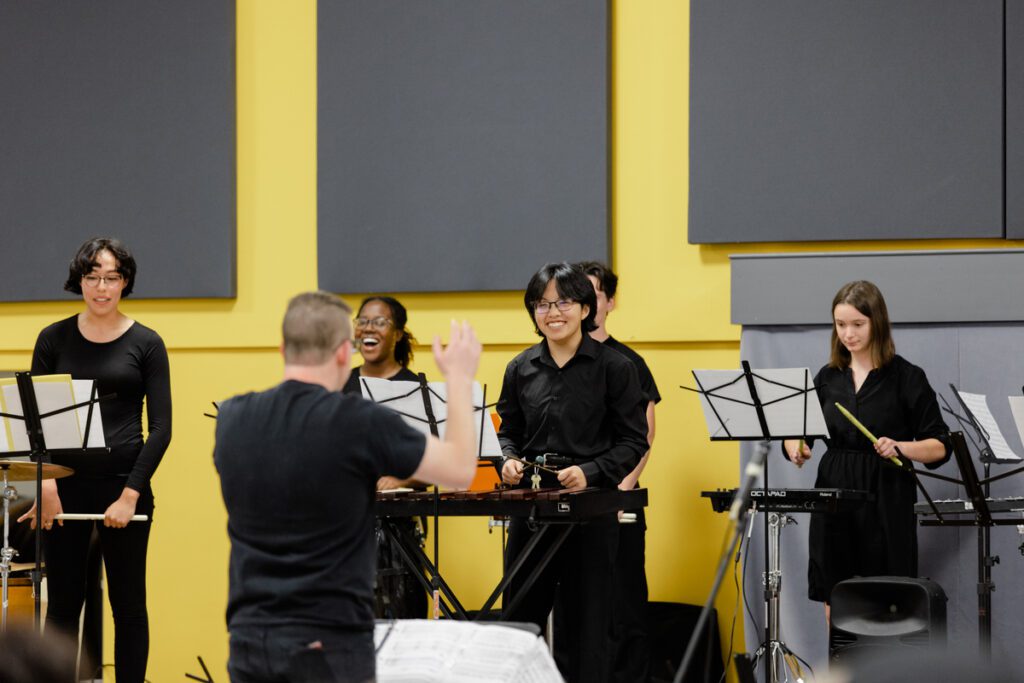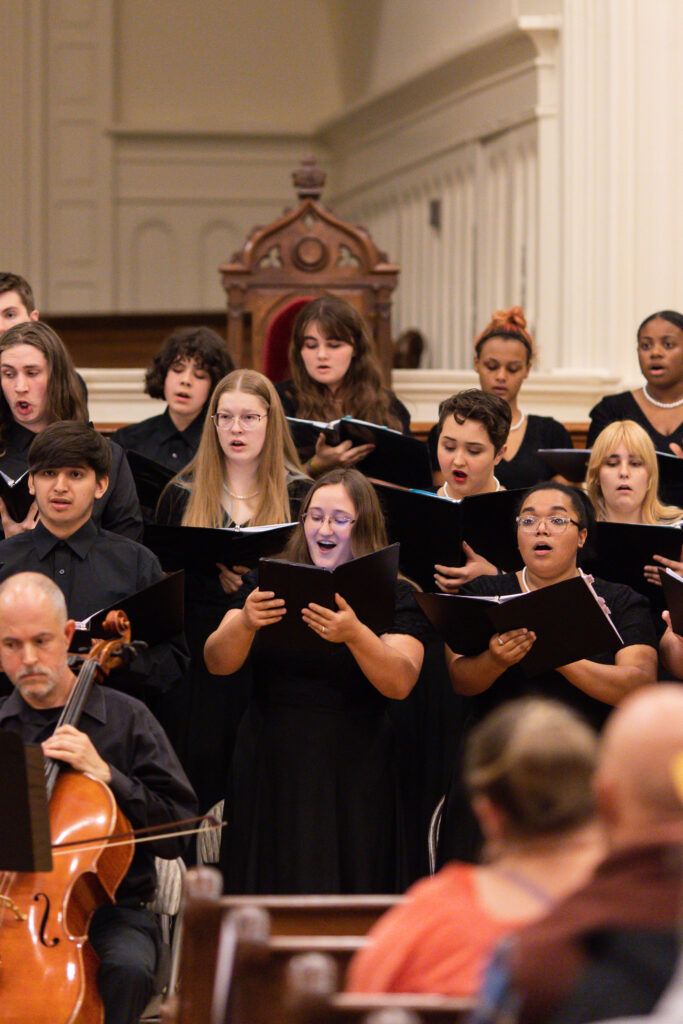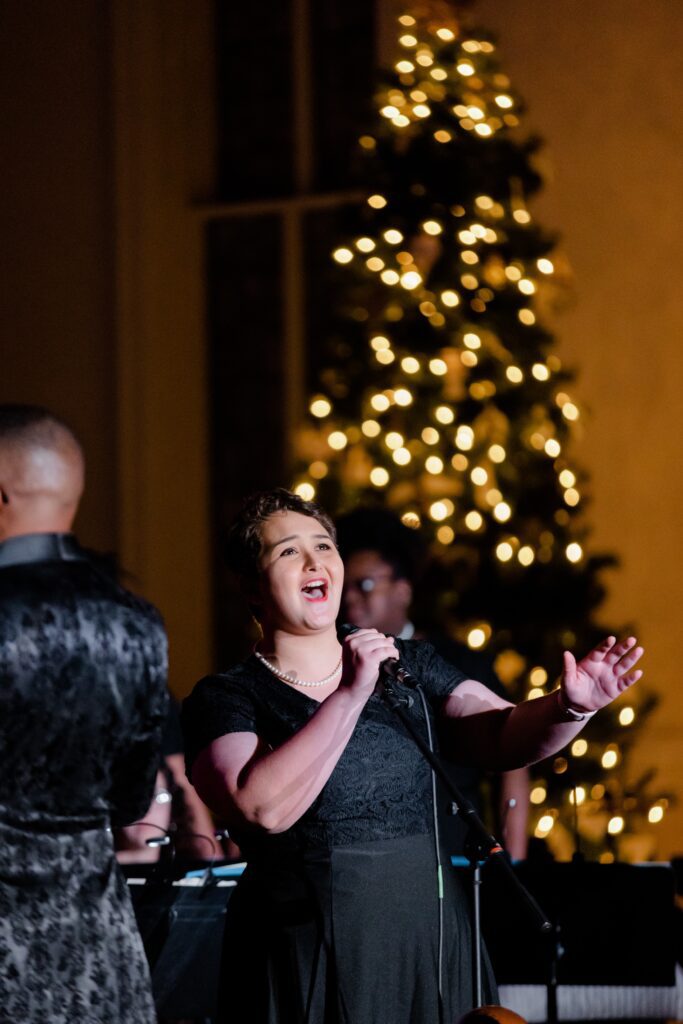Incorporate song into your academic path.
Music is one of the greatest ways to express yourself and collaborate with others. Studying music at MBU means exploring everything from history to theory to performance. Beyond providing a fulfilling artistic outlet, a music minor adds a unique dimension to your academic journey and helps prepare you for professional success.
- FormatOn Campus
- Degree(s)Minor
Next steps


Why Study Music at Mary Baldwin?
Do you have a passion for music and performance? An MBU Music minor is not only personally fulfilling, it complements any major and can help you stand out in a competitive job market.
In addition to enhancing creativity, our students demonstrate a strong work ethic, discipline, and a commitment to excellence, while collaborating and communicating effectively. These are skills that are highly attractive to employers, regardless of profession.
And, because our program is designed to be flexible, you can focus on the aspects of music that are most appealing and relevant to you.
A Faculty of Performers and Scholars
Our outstanding faculty are all active performers and scholars who are highly respected in their field. Intimate class sizes mean personal attention, and at MBU, music students get to perform right away, starting in their first semester, rather than waiting around for seats to open up like at larger universities.
Spaces and Stages for You
Classes and lessons take place in the recently refurbished Deming Fine Arts building. All practice rooms have grand pianos. Our choral students enjoy classes and rehearsals in the Grafton Choir Room, a space that has also been recently updated. And, all music students have the opportunity to perform in Francis Auditorium, a small recital hall with wonderful acoustics.
Next steps
I am at a loss for words about how incredible and life-changing the experience of working on my senior project was. Studying and exploring the music and lives of groundbreaking, historic Black composers like Undine Smith Moore and Joseph Bologne has forever changed who I am as a musician and scholar.
Chasity Ford ’23Music major

Students love our classes
Don’t expect a tired lecture at Mary Baldwin. Our courses are full of surprises. See a few samples below.
Explores the development of music from a historical and cultural perspective. Investigate examples from a variety of styles and genres, including Western classical music, jazz, rock, pop, and world music. Spend a semester refining your listening skills and enjoyment of music.
Examine the rich history of women as composers, performers, listeners, patrons, critics, and objects of musical representation. Includes examples drawn from Western classical, popular music, and world cultures.
An examination of jazz as both a musical and sociological phenomenon; this course focuses on the musical developments that resulted in jazz, the major jazz styles from New Orleans to the present, and musicians who have strongly influenced these styles.
Our Faculty
Our School’s talented faculty is as passionate about teaching and mentorship as they are about their own creative endeavors.

